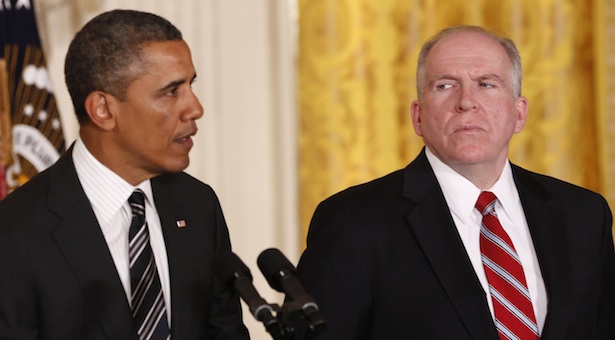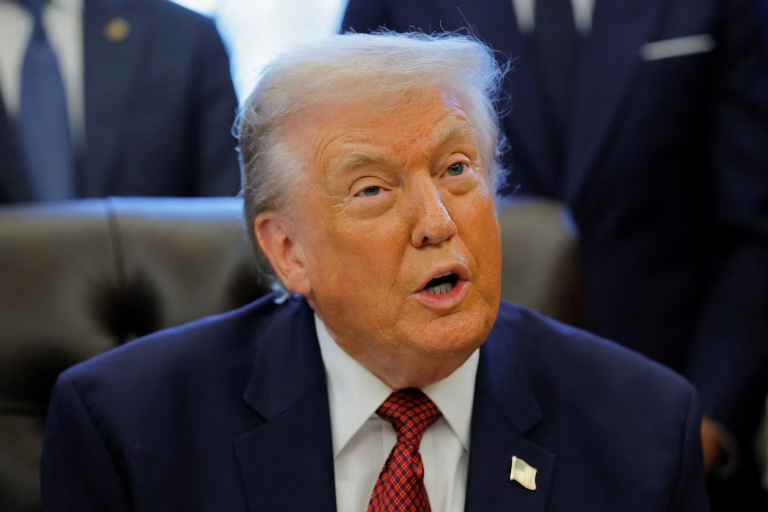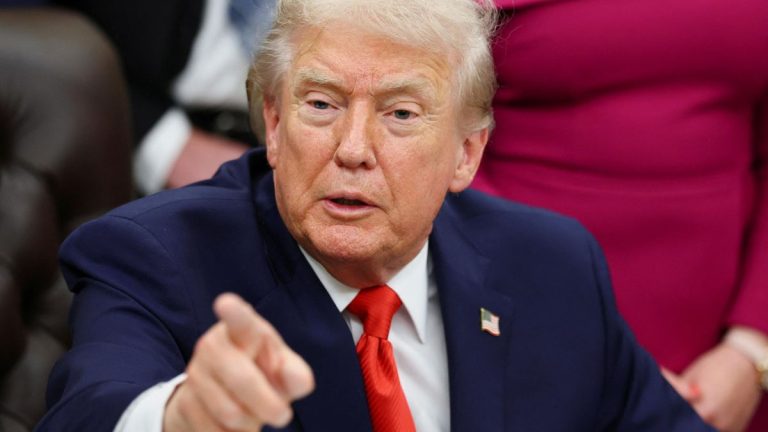On October 21, 2025, the U.S. House Judiciary Committee, led by Chairman Rep. Jim Jordan (R-Ohio), officially referred former CIA Director John Brennan to the Department of Justice (DOJ) for potential criminal prosecution. The referral alleges that Brennan made “willfully and intentionally false statements” during his May 2023 congressional testimony about the CIA’s involvement with the infamous Steele dossier and its inclusion in the 2017 Intelligence Community Assessment (ICA) concerning Russian interference in the 2016 presidential election.
While political commentators have already drawn strong conclusions about the referral, it is crucial to separate confirmed facts from speculation. Here’s what is verifiably true about the situation as of now — including the referral itself, the nature of the allegations, and the implications for Brennan and the broader intelligence community.
The Referral by the House Judiciary Committee
According to the official referral letter released by the House Judiciary Committee Republicans, the committee has accused John Brennan of providing false and misleading testimony to Congress in 2023. Specifically, the referral alleges that Brennan’s statements regarding the CIA’s role in handling and including the Steele dossier in the 2017 ICA were inaccurate.
The Judiciary Committee claims Brennan denied that the CIA had any involvement with the dossier and said that the agency actually opposed its inclusion in the ICA. However, according to newly declassified materials cited in the committee’s report, Brennan allegedly directed that parts of the dossier be included despite opposition from some intelligence officials.
Chairman Jim Jordan stated in the referral letter that Brennan’s actions “undermined the integrity of the intelligence process and misled Congress about the extent of CIA involvement in producing the 2017 assessment.” The letter adds that the committee’s findings are based on recently declassified internal memos, emails, and briefings that suggest a different version of events than what Brennan described under oath.
This referral marks one of the most serious formal actions Congress can take against a former senior intelligence official. However, it is important to note that such referrals are not criminal charges. They are requests for the Department of Justice to review the evidence and determine whether prosecution is warranted.
Sources such as Axios and the official House Judiciary Committee press release confirm that the referral was transmitted to the DOJ on October 21, 2025. It now falls under the purview of federal prosecutors to assess whether the evidence meets the legal threshold for charges under 18 U.S.C. § 1001, which prohibits knowingly making false statements to Congress or federal investigators.
The Nature of the Allegations
The allegations stem from Brennan’s testimony about the use of the Steele dossier, a controversial compilation of opposition research produced by former British intelligence officer Christopher Steele. The dossier, funded in part by the Democratic National Committee and Hillary Clinton’s 2016 campaign, contained a series of unverified claims linking then-candidate Donald Trump and his associates to alleged Russian interference efforts.
During his May 2023 testimony, Brennan reportedly asserted that the CIA “played no role” in compiling, promoting, or validating the Steele dossier. He further maintained that the CIA discouraged the inclusion of the dossier’s contents in the Intelligence Community Assessment on Russian election interference released in early 2017.
However, according to the Judiciary Committee’s referral, recently declassified documents tell a different story. Those documents, reportedly obtained from internal CIA communications and interagency memoranda, suggest that Brennan directed analysts to include “relevant portions” of the dossier in the ICA and to ensure that it was “reflected” in intelligence summaries shared with the White House and other national security officials.
The referral asserts that Brennan’s signature appears on at least one directive authorizing the inclusion of Steele dossier material in the ICA. This, according to the committee, contradicts his sworn testimony that he opposed such inclusion.
Newsweek and Axios both reported that House Republicans have cited “a pattern of misleading testimony” by Brennan, referencing additional statements he made during closed-door hearings in 2020 and 2023. The committee claims this pattern demonstrates an intent to mislead Congress rather than a mere difference in interpretation.
While the Judiciary Committee’s referral is based on documentary evidence, it is still a political document. The DOJ has not yet independently verified the committee’s conclusions, and Brennan’s representatives have not publicly commented beyond reaffirming his prior statements that he “acted with honesty and integrity” in all dealings with Congress.
A Referral Is Not a Prosecution
It is important to understand what a congressional criminal referral means — and what it does not. A referral is essentially a formal request to the Justice Department to evaluate whether there is sufficient evidence to open or expand a criminal investigation. It is not an indictment, nor does it imply that the DOJ has found wrongdoing.
The DOJ is not legally obligated to act on congressional referrals. In many cases, such referrals are reviewed by prosecutors and then quietly closed if insufficient evidence is found to meet the high burden of proof required for criminal charges.
As Axios explains, “A congressional referral carries political weight but limited legal authority. The Justice Department must independently determine whether the facts and law justify criminal proceedings.”
Historically, referrals of senior officials are rare, and prosecutions even rarer. For example, referrals have been made in the past against former Attorneys General, Cabinet members, and intelligence officers, but few have resulted in actual charges.
Nevertheless, the referral represents a significant development in the continuing political and legal battles over the origins and handling of the Russia-Trump investigation. It reflects ongoing efforts by congressional Republicans to revisit the intelligence and law enforcement decisions made during the final months of the Obama administration and the early Trump presidency.
Existing Investigations into Brennan and Related Figures
The referral comes amid a broader wave of investigations into how U.S. intelligence agencies handled the Russia collusion allegations between 2016 and 2017. According to Axios and The Washington Post, the Department of Justice had already opened preliminary inquiries into Brennan and former FBI Director James Comey earlier in 2025.
Those investigations reportedly focus on whether Brennan, Comey, or other senior officials provided false or misleading statements about their respective agencies’ involvement with the Steele dossier, as well as whether they acted outside proper intelligence channels when briefing the incoming Trump administration.
The renewed focus on Brennan appears to be part of a larger Republican effort to scrutinize what they describe as “abuses of power” during the 2016 election and transition period. For their part, Brennan’s allies argue that the referral is politically motivated and part of an effort to discredit officials who oversaw investigations that were politically inconvenient to Trump.
While there is no indication that formal charges have been filed against Brennan, the DOJ’s review of the referral could potentially merge with existing inquiries. Whether the Department ultimately decides to prosecute will depend on the strength of the evidence and the willingness of Attorney General Merrick Garland’s office to pursue the matter.
What Happens Next
Now that the referral has been made, the Justice Department will examine the committee’s materials, including the declassified documents cited as evidence. Prosecutors must determine whether Brennan’s statements meet the standard for “knowingly and willfully” making false statements under 18 U.S.C. § 1001.
Legal experts note that false statement cases are often difficult to prosecute, especially when testimony involves complex intelligence processes and differing interpretations of classified material. Brennan could argue that any discrepancies in his statements were the result of classification limits or evolving assessments within the intelligence community.
If the DOJ chooses not to pursue charges, the case could still have lasting political repercussions. It may fuel calls among Republicans for further oversight of the intelligence community, while Democrats are likely to characterize the referral as a partisan attack on former officials.
Either way, the referral ensures that Brennan — and the debate over the Steele dossier’s legacy — will remain a central issue in Washington for months to come.
In Summary
The confirmed facts are clear: the House Judiciary Committee, led by Rep. Jim Jordan, has referred former CIA Director John Brennan to the Department of Justice for allegedly making false statements about the Steele dossier and its inclusion in the 2017 Intelligence Community Assessment.
Declassified materials cited in the referral reportedly contradict Brennan’s sworn testimony, but the DOJ has not yet announced any decision on prosecution. While the referral represents a major escalation in congressional oversight, it is not, in itself, proof of criminal conduct.
Whether this results in charges or simply adds another chapter to the long-running political battles over the 2016 election remains to be seen.

Emily Johnson is a critically acclaimed essayist and novelist known for her thought-provoking works centered on feminism, women’s rights, and modern relationships. Born and raised in Portland, Oregon, Emily grew up with a deep love of books, often spending her afternoons at her local library. She went on to study literature and gender studies at UCLA, where she became deeply involved in activism and began publishing essays in campus journals. Her debut essay collection, Voices Unbound, struck a chord with readers nationwide for its fearless exploration of gender dynamics, identity, and the challenges faced by women in contemporary society. Emily later transitioned into fiction, writing novels that balance compelling storytelling with social commentary. Her protagonists are often strong, multidimensional women navigating love, ambition, and the struggles of everyday life, making her a favorite among readers who crave authentic, relatable narratives. Critics praise her ability to merge personal intimacy with universal themes. Off the page, Emily is an advocate for women in publishing, leading workshops that encourage young female writers to embrace their voices. She lives in Seattle with her partner and two rescue cats, where she continues to write, teach, and inspire a new generation of storytellers.









